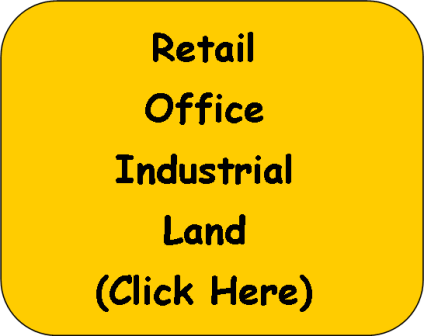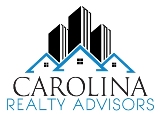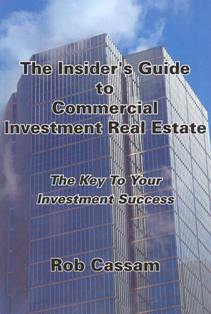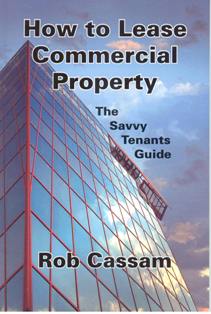For those of you keeping
track, please note I have changed my email address to
robcassam@gmail.com.
Please update your records.
In this issue I focus on a variety
of important commercial real estate topics for both tenants and owners. I hope some of these may
help you know or in the future. This new format includes money making tips
for all types of commercial real estate including tips for end users of
commercial real estate.
|
|
Increasing Cash Flow In Apartment Investments
|
For apartment owners, the way to increase rental income and gain a
bigger return on investment is to improve the property. One way to reduce
vacancies and increase rentability of apartment units is to make them
cleaner, brighter, fresher, more comfortable and homey than other apartments
in town.
Sometimes these two objectives can be in conflict. For
instance, an improvement designed to attract tenants may cost so much that
the amount of necessary rent increase makes the units harder to rent.
The Factors In The Decision
Here are some ideas
about the factors that come into the decision to make alterations, or
remodel the apartment property:
Take a hard look at the rent schedule
to see what the vacancy situation is now, if there are any concessions or
giveaways currently in effect in the building, and the prospects for
renewals. The answers can provide some answers about the timing of
renovations.
Painting both exterior and interiors is a good and
inexpensive way to make a property look instantly better. This usually
yields an immediate and satisfactory return on the cash cost. Experts
recommend the use of lot of white and soft colors. If you think about using
wallpaper or wall coverings for a more formal effect, realize that they cost
more initially, but may last longer than paint.
If you replace
carpets, drapes and appliances, the appearance of the unit is dramatically
improved and the chance for rentability increases. These costs, however,
cannot usually be recouped quickly by means of a higher rent charge.
Adding some recreational facilities can be a way to attract tenants. At some
properties, a jogging track might be provided at a fairly low cost. Other
exercise equipment such as horizontal and parallel bars can be inexpensive.
Providing saunas, indoor exercise rooms, aerobic exercise areas or swimming
pool are expensive and may not be justified by either an increase in
rentability or return on investment.
Take care if any
kinds of exercise facilities are added, check with your liability insurance
agent to determine the protection needed against litigation from injuries.
Adding barbecue pits and picnic tables if space is
available can inexpensively attract tenants.
Remodeling a kitchen or
bathroom is always expensive. If your kitchens and bathrooms are now very
outdated, they may be costing you lost rentals. If the funds to do the
remodeling must be borrowed, making the determination of the amount of
increase in rent will take careful calculation. Try to recover at least the
financing costs within the first term of the lease.
Sometimes a
washer and dryer rental company will totally refurbish the laundry room as
part of the opportunity to install their coin-operated equipment. The owner
of the property can make the property more attractive and rentable without
any cash outlay at all.
In some apartment properties, recreation
rooms have been converted into a day-care center staffed by a licensed
day-care operator. The room might be divided for use by both young children
and elderly people. It becomes a source for additional income for the owner
and a drawing item for working mothers and for workers who care for elderly
parents. Again, check your liability insurance!
Always keep tabs on
the condition of the property. Make repair and improvement decisions
promptly. If conditions deteriorate, it can lead to costly projects later.
Keep very alert to what the competition is doing and always try to stay
competitive with them.
|
|
Why The Office Building Is A Hot Investment
|
The second hottest investment (second only to apartments) is the office
building. That is the suburban office building rather than the ones in
downtown areas.
An office building has always ranked as one of the
favorite real estate investments of most large institutions, insurance
companies, pension funds, banks and foreign investors. It follows, then,
that if they are that attractive to institutional investors, they should be
of interest for the average investor now.
Why The Office
Building?
The income in a well-operated office building can
be excellent. An office building that is fully occupied has a rental income
less operating expenses that compares favorably with a shopping center
investment.
Office leases are not computed based on a percent of the
retail sales like shopping centers. The rent in office buildings is often
fixed for the duration of the lease, with a formula tied to the rate of
inflation and other factors - all designed to maintain or enhance the profit
margin.
Increasing the revenues from an office building has to focus
on rents. Keeping rents at a proper level at the time of a lease renewal is
obvious. Consider charging rents based on space used by the tenant plus a
percentage of space represented by restrooms, hallways, atriums, rather than
space actually within the walls of the tenant's unit. A difference of over
10% between usable space and rentable space is common.
Another saving
can be in changing the leasing of the building from a gross basis to a net
basis. In a gross lease, the lessor collects the rent, but is responsible
for all of the operating costs, such as real estate taxes, utilities,
maintenance, management, etc.
Switching to a net lease on renewals
for new occupants, all of the costs are allocated to the tenants on a
pro-rata based on the square footage being used.
However you compute
the terms of the lease, the pressures of the marketplace may cause the rents
to remain the same or go down. Not long ago, we saw reduced rents and
concessions such as free rent in overbuilt areas.
Some companies
continue to reduce the need for office space because of more efficient space
planning and reduced home office personnel. Some have employees working from
their homes, in touch with the office by computer. These trends will have
some effect on the demand for office building space. Management and social
realities dictate that office locations of some kind are needed for nearly
all businesses.
The Terms in Leases
The
lease of office space will vary widely in term. It can run anywhere from one
to 25 years (in extreme cases, sometimes longer). The bargaining position of
the tenant can range from practically none for a short-term tenancy for a
small office to the extremely strong position of a Triple-A tenant who will
occupy the major part of the building.
Of course, the owner and the
tenant know that rent will be required and paid. The question always is how
much will be paid and how will it be computed. Following are points that are
negotiated in leases for office space.
A Flat Rental.
This lease calls for a rent amount that will be the same for the whole
term and is most common in the short-term rental. The problem with the
landlord is the failure to protect him against unreimbursed increases in
taxes and operating expenses.
A Step-up Lease.
This contract calls for a gradually increasing amount of rent, to be
stepped-up a certain amount or percentage at specified intervals. It may be
used to compensate the owner for expenses as they increase, but more often
it is used as an inducement for a tenant who has recently started in
business and may be only able to afford a smaller rent.
Expense Participating Lease Or Escalator Lease.
Many
long-term office leases are written this way. The tenant pays a fixed rent
plus a specified portion of the real estate taxes, insurance, and repairs
other than structural ones. The expense participating lease requires the
tenant to pay an immediate share of these costs, while with the escalator
lease the tenant pays only a portion of any increases in costs during the
lease term.
Cost Of Living Lease.
With this
lease, the tenant's rental amount is increased or decreased at specified
intervals depending on the fluctuation of the dollar as shown by price
indices or other agreed measures of the degree of inflation or deflation
that has occurred.
Reevaluation Lease.
This
lease calls for an appraisal of the property and a fixing of the rent as a
percentage of the appraised value at specified intervals. The new rental may
be fixed on the basis of the value of the land and building, or on the
rental value of the premises occupied by the tenant.
In addition to
these computations of the amount of the rent, the lease should indicate the
method of payment. In some cases, the tenant's income is seasonal, and
monthly payments can be of unequal amounts. The date of the first rental
payment should be set forth specifically, and the intervals when subsequent
payments are due. If any rent concessions have been granted by the landlord,
the lease should clearly indicate the months that are to be rent-free.
Watching Some Lease Provisions
The following is
a useful checklist of some of the items that should be clarified between the
parties in the lease:
1. What is the amount of usable space?
Since the rent may be based on a square foot rate, the rate may be quoted on
a rentable or a usable area. Rentable space means the actual office area,
plus a proportionate share of facilities and corridors that service the
floor on which the office is located. This concept is used in most
buildings. Usable space is the actual space located within the walls of the
office and excludes any part of the service facilities.
2. Who
pays the broker's commission? Maybe the broker has been working for the
tenant, but the fee is usually paid by the lessor. Often the lessor has
hired the broker to represent him in the negotiation. The lease should
reflect the obligation and who will pay it.
3. On what basis is
electric current or other utilities paid? The tenant usually will pay for
his own utilities. However, it can be computed in two different ways. It
could be a flat rate added to the rent. Sometimes, each office is provided
with its own meter and charged only for the actual consumption of the
utilities.
4. What services will be provided? There are a
number of services in a building. There may be elevator service, air
conditioning, restroom maintenance, parking that is available to tenants or
will be rented. The tenant's right to use these services and the limitations
should be spelled out.
5. Is there a "most-favored tenant"
clause? If a tenant moves into a new building that is only partially filled,
he may demand a clause in the lease that will give him the benefits of any
rental concessions that the landlord may subsequently make in order to
obtain tenants.
Managing a Small Office Building
Office buildings usually take less of the owner or manager's time and
attention than other types of property. Some office building owners are
former apartment owners who didn't like handling the details of apartment
ownership and management, but who do like running an office building.
Tenants in office buildings are usually much less demanding than
residents in apartments, since the tenants can generally be dealt with on a
much more professional level. Professional management is easy to get -
competent property management companies are available in most areas.
|
|
Getting Rich By Solving Problems In Real Estate
|
An empty new office building. A remodeled apartment house or hotel that
has an excessively high level of vacancy. A large tract of undeveloped land
that no developer has become serious about wanting to develop. These are
examples of troubled property -- property that is a definite financial
burden to continue to hold but which also is unattractive property to most
prospective buyers. Unattractive, that is, until very recently.
The
timing now seems increasingly right for investors to obtain troubled
property at bargain prices. There are two reasons for this: (1) the supply
of money for real estate loans is at record high levels and growing
measurably, and (2) the pressure on owners and lenders with troubled
property to get out from under the on going burden is also high. The result
is that syndicates are rapidly being formed to seek out and buy up troubled
properties.
High Risks
Knowledgeable property developers and
managers (especially those familiar with empty or near-empty office, hotel,
and apartment buildings) caution that buying troubled property requires
taking a very high risk. The financial returns are uncertain and may be a
long time in coming, if they come at all. This type of investment is not for
everyone; it's for those who can afford high-risk situations.
The
profits can come from any one or a combination of circumstances.
1.
A market turnaround caused by a boom in the local and/or national economy.
2. An improved system for promoting and operating the property.
Some syndicates are being formed solely to manage the troubled property with
an option to buy when and if it hits a specified profit level.
3.
Purchase of the property at an almost give-away price, often combined with
imaginative and untraditional financing techniques. Some lenders are asked
to share the financial risks by accepting a low initial interest rate in
return for a big share of the profits later on. Sometimes the seller of the
troubled property is asked to retain a financial stake in the property and
to help turn it around. The seller's experience and involvement in the
project from the start can be valuable.
4. Including the
troubled property in a larger development plan. An office building that sits
empty might become part of a new industrial park with hotels, conference
facilities, and residential apartments, all of which are successful.
Take another look at troubled properties in your area. With fresh new
ideas and a re-structuring of the mortgages, the troubles may go away,
leaving a profitable investment for you.
|
|
|
|
In This Issue
|
|
Increasing Cash Flow In Apartment Investments |
|
Why the Office Building Is A Hot Investment |
|
Getting Rich By Soving Problems In Real Estate |
|
Featured Listings |
|

|
Latest Charlotte Area Market Fundamentals
REIS provides the latest overall market fundamentals for
office, industrual, and apartments. Enjoy reading a wealth of information in
order to understand the latest trends.
click here
|
|
Contact Information |
Rob Cassam, MBA, CCIM
Carolina Realty Advisors
1001 East Blvd. Ste. B
Charlotte NC 28203
Tel: (800) 587-4066 Ext. 100
Fax: (704) 442-8841
robcassam@gmail.com
Website
|
|
Services... |
|
I provide real estate brokerage services for small and medium sized businesses,
investors, and individuals who are fed up with losing money, paying too much
and/or, spending too much time not getting the right piece of property for their
particular situation. I act as the quarterback in the real estate transaction for my clients who coach
me in managing all of their different needs.
My clients love not needing to worry about making bad decisions or bad
investments and love winning negotiations.
Owners Of Commercial Space
How
are your properties helping you in your life?
Have
your investments turned out as planned?
What
types of problems have you had growing your portfolio?
How
has the economy impacted your rents and vacancy?
Are
you satisfied with your income and asset portfolio?
Is it meeting your needs?
How
much of a problem is dead equity in your property?
How
long are you prepared to go on doing nothing about situations in your business
that are not quite right?
End Users Of Commercial Space
What types of growing pains is your company facing with your location?
Are rising occupancy costs a challenge your company is facing?
Is having too much space or not enough space a challenge your company is
facing?
How much of a problem is dead equity in your property for you?
How long are you prepared to go on doing nothing about situations in
your business that are not quite right?
Give me a call, I may be able to help.


|

How To Lease Commercial Property |
|